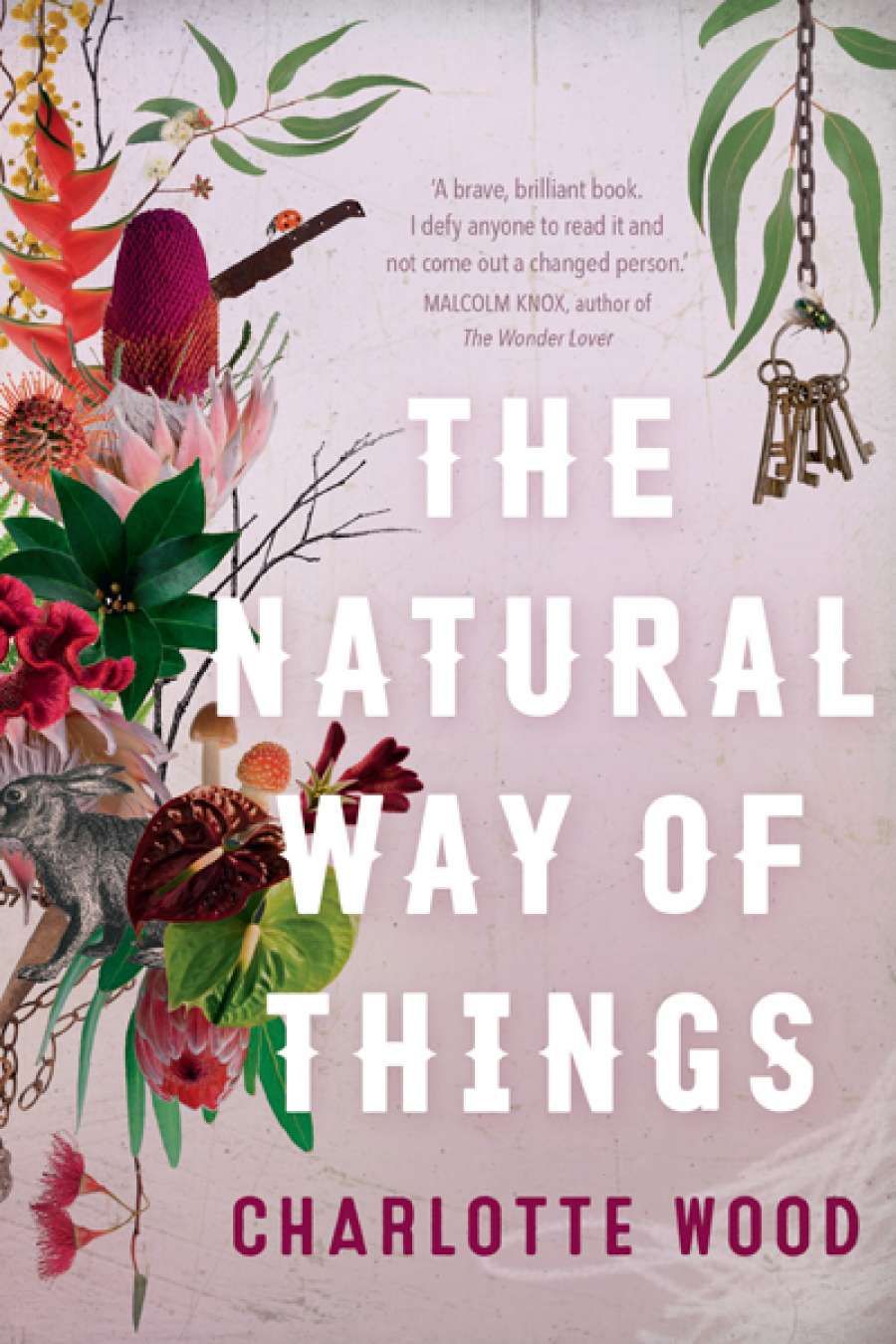
- Free Article: No
- Contents Category: Fiction
- Custom Article Title: Susan Lever reviews 'The Natural Way of Things' by Charlotte Wood
- Review Article: Yes
- Online Only: No
- Book 1 Title: The Natural Way of Things
- Book 1 Biblio: Allen & Unwin, $29.99 pb, 320 pp, 9781760111236
- Book 1 Readings Link: booktopia.kh4ffx.net/4b9bo
As time passes, the women are reduced to a kind of animal physicality, stripped of vanity as they come to terms with the nature of their unadorned bodies. They all appear to be city girls ignorant about life on the land and reliant on the media for information. The male 'saints' of television, Jamie Oliver and Kevin McCloud, are sources of hints about food and leather-tanning. It is an amusing touch in a novel that maintains a sense of threat throughout.
This is the territory of Margaret Atwood's The Handmaid's Tale (1985), where fiction proposes a world where the desire to control women is enacted with physical force. It has echoes of Lord of the Flies (1954) and even Barbara Baynton's story 'The Chosen Vessel' (1896). The premise of a society that habitually blames the woman – or worse, the female victim – for sexual transgression leads to an imagined form of 're-education'. It is a dystopian fantasy that touches contemporary reality.
Strangely, Wood does not seem to take her idea far enough. The ominous atmosphere suggests to the reader much more appalling possibilities than the novel gives us, and there are moments when the internal logic of this dystopia is questionable. The two men guarding the women are pathetic specimens, and the women remarkably passive, even when the drugs run out. Wood gives her attention to the changes in the individual women's bodies rather than their thoughts, and they do not develop much communal spirit or solidarity. Everyone inside the electrified fence appears to have been abandoned by the outside world, but the enmity between women and men – even outcast men – prevents any cooperation. We never understand the purpose of their incarceration beyond the need to remove them from society. If there is a universal male conspiracy against women, how does it operate? Yolanda and Verla educate themselves about the natural world, but they retain curious inhibitions – why kill a rabbit for food but not a kangaroo?
'Are they in a prison, or a religious cult, or – as one of their fellow inmates suggests – inside a reality television show?'
Because it is a short novel, working like an extended short story, the lack of information about the organisation of the prison or the world beyond it can be put aside for the enjoyment of its frisson of fear. It moves at a fast pace, and Wood comes up with some fine touches, such as the beak-like bonnets the women must wear.
 Charlotte Wood
Charlotte Wood
Perhaps one of the inhibitions on the author is the way that depictions of the humiliation of women so often feed misogyny; there is a sense that Wood is restraining herself from portraying the nastier aspects of contemporary treatment of women. At the same time, the images she gives us of imprisonment in sheds in a desolate countryside recall only too clearly the real world we live in – and Australia's shameful treatment of asylum seekers. Beyond Australia, of course, there are societies whose retribution against sexual women makes this novel look tame.
That reference to reality television emphasises the irony of contemporary media saturation. Inside their prison, the women are beyond any media, any communication. A prying journalist, a phone call, or a text might bring about their release, though the popular media has presumably created their infamy. But it also suggests that Wood is aware that fictions like The Natural Way of Things have some clear parallels with the false dramas and crises of survival that we see on television. This makes her novel unsettling, not only as a speculation about dark possibilities, but also because it is a thrilling portrayal of them.


Comments powered by CComment